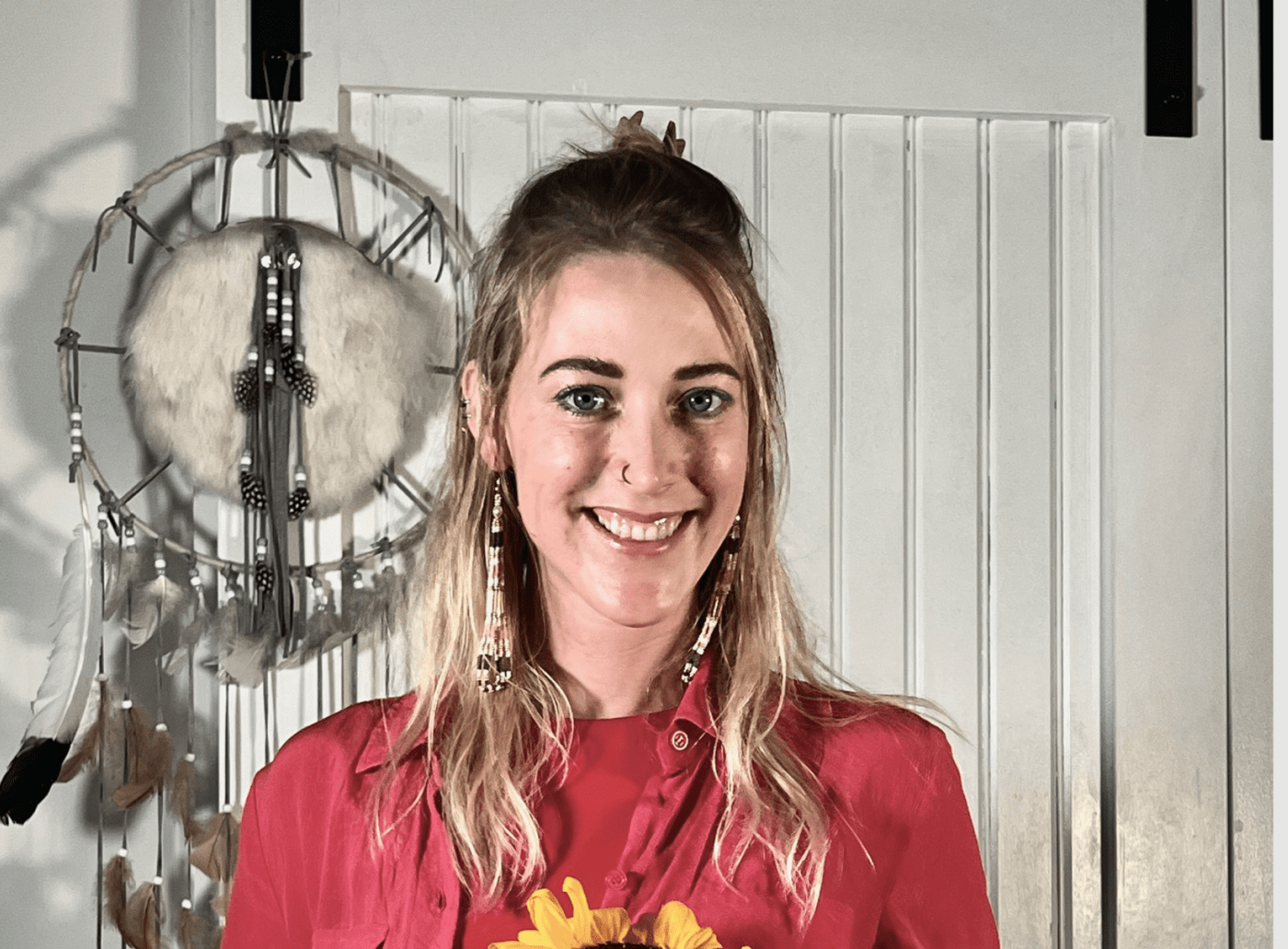What age does menopause start on average? What are the signs of early menopause? Learn more about premature menopause.
What is the average starting age for menopause?
The average age of crossing from perimenopause into menopause is 51. Some women simply stop bleeding and that’s the end. Plain and simple. Other women experience a roaring of unpredictable surges of symptoms that can last a long time… 1 to 3 years, or maybe more. These women experience dramatic shifts in the amounts and frequency of bleeding over many months or even years. And it’s during this storm that a brand new depth of healing is to be explored. It’s impossible to predict how any one woman’s experience will unfold! Perimenopausal symptoms may begin as early as age 35 and end as late as age 59.
What is the difference between early menopause and premature menopause?
The answer lies in the timing. Sometimes symptoms may begin prematurely for some women. When a woman reaches menopause before age 40, this is considered premature menopause. When a woman reaches menopause before age 45, this is defined as early menopause. ( Note: neither of these is the same as the early stages of (peri)menopause, which is defined as the beginning stages of the progression of later menopausal transition that typically begins in the late 40’s.) About 5% of women will experience early menopause and approximately 1% of women will face premature menopause.
What are the symptoms and signs of early and premature menopause?
You may start having irregular menstrual cycles for a few years leading up to your last menstrual period. Longer or shorter menstrual cycles, spotting between periods or changes in vaginal bleeding can often be indicators of menopause. If you experience irregular periods, check with a doctor to look into possible causes.
The actual list of symptoms early of premature menopause looks alot like the list of menopause, but with early and premature menopause, these symptoms can be more severe. And keep in mind that other conditions like PCOS can also have many of these same symptoms.
This list includes:
- Irregular periods
- Night sweats
- Hot flashes
- Brain fog – inability or difficulty in focusing
- Irritability
- Vaginal dryness
- Unexplained infertility
- Low libido
Additionally, women facing early and premature menopause may also face difficulty sleeping, hair thinning, weight loss/gain, racing heart, breast tenderness, mood swings, and more frequent urinary tract infections. Fun, right?
What is the connection between early/premature menopause and premature ovarian failure?
They are NOT the same thing. Healthcare providers now use the term primary ovarian insufficiency to make this distinction more clear. POI is a condition where you stop ovulating and your period stops suddenly and spontaneously, either early or prematurely.
POI isn’t the same as premature or early menopause, because with POI, there’s a chance you could start ovulating again and get your period back. People with POI may still ovulate, menstruate or even become pregnant. But with early or premature menopause, you don’t ovulate, you don’t menstruate, and you lose the ability to get pregnant. It’s a tough diagnosis to receive to say the least.
What is the cause of early and premature menopause?
Many of the causes of both early and premature menopause overlap. Both conditions can occur as the result of cancer treatment or surgery. But sometimes we don’t know why this happens. Yet anything that harms your ovaries or causes your body to stop estrogen production can result in the onset of menopause, at any age.
Some causes of early or premature menopause include:
- Chemotherapy or radiation to treat cancer
- Surgery that removes your ovaries and/or uterus
- Family history of menopause at an early age
- Getting your first period before age 11
- Chromosomal abnormalities such as Fragile X or Turner’s syndrome
- Autoimmune diseases like rheumatoid arthritis, Crohn’s disease
- Smoking cigarettes
- Myalgic encephalomyelitis/chronic fatigue syndrome (ME/CFS).
- Having HIV or AIDS
And in about half of the cases of early/premature menopause, we don’t really know the exact cause.
How is early/premature menopause tested?
If I am seeing you for the onset of menopause symptoms before the age of 45, I’ll ask you some questions to try to help me get to the root of what’s going on. We’ll talk about the regularity of your cycles and your family history. We’ll try to figure out if there is anything else going on like a thyroid issue that may be an underlying cause for your early/premature menopausal symptoms. I may recommend some lab-work.
I use the World Health Organization values for fertility in order to evaluate hormone health. Basically, the lab values have a tighter range than what is accepted and used in the conventional medical system. It is also very important to note that you have other testing options that are not offered by your conventional doctor. These include functional medicine tests that can assess environmental toxicity, cortisol, free hormones, gut health, and nutrient analyses.
Functional Medicine Labs are the labs that help your Naturopathic/ Functional Medicine Doctor take you “beyond fine” in your health goals. They are proprietary tests (unapproved by the American Medical Association) that help narrow down your wellness plan and give more information that can be used to direct your health journey. One of my favourite tests to use is the DUTCH test, a dried urine hormone test.
How is early/premature menopause treated?
Early and premature menopause cannot be reversed. But the symptoms associated with the extremely low estrogen levels can be managed.
Conventional doctors typically use hormonal oral contraceptives or hormone replacement therapy as go-to’s for treatment. While I may recommend HRT to some women in specific cases, I turn to plant medicine, nutrition, and lifestyle changes to help relieve the symptoms of early/premature menopause by supporting your body’s natural function, nourishing your endocrine system. But once menopause is reached, we can’t make your ovaries start working again.
However, in the case of primary ovarian sufficiency, there is a tiny chance that ovarian function can return with the improvement of the overall health of your ovaries and uterus.
Many of the recommendations I make for my patients with PCOS and/or infertility also help women who are enduring early/premature menopause. As an integrative healthcare provider, I also help you to examine how your environmental toxins may be contributing to your hormonal imbalance that is causing your symptoms. After thorough testing, I can direct you to herbal medicines that support estrogen production. In addition to herbs, I emphasize that a key treatment for early/premature menopause is a commitment to a lifestyle change that focuses on a healthy diet and enjoyable exercise.
What about getting pregnant after a diagnosis of early or premature menopause?
The hardest thing about this diagnosis is the inability to get pregnant after reaching one year without your period. But there is hope. That’s because if you have not gone 12 months consecutively without a period, there is a chance you can still get pregnant! In the years leading up to your final bleed, there’s a chance you could still be ovulating.
If you are seeking to get pregnant and have been told you may be close to early or premature menopause I would be honored to work with you to support you in your desire to have a baby.
I focus on somatics, targeted nutrients, and lifestyle to prepare your egg and sperm health. Therefore, your baby is more likely to inherit the healthiest of both parents’ familial lines. As epigenetic shifts take place in-utero and in development, you prepare your home to be a non-toxic environment. Your preparation of both baby rooms ensures that your dear child has the best environment in place to grow in true health.
I am trained in Mercier Therapy, which is an effective complement to any fertility journey and natural conception. Mercier is site-specific, manual soft tissue therapy which is a deep pelvic visceral manipulation protocol that helps to bring about better organ mobility and restore overall blood flow so that optimal pelvic function can return. I believe wholeheartedly in this safe, effective, healthy approach. Mercier Fertility is flexible enough to be used alone in your journey to becoming pregnant, or in preparation for a more medically assisted cycle such as IUI or IVF.
If you are curious about a fertility journey with me; or what your best options are for your individual needs, you can book an initial visit.
To learn more about symptoms and signs of menopause, read this article.
In Closing
Hormone healing journeys are hard. They just are. But you are not alone!
Maybe you are longing to be pregnant. Maybe you are seeking to come to terms with saying goodbye to your fertile self. And maybe this goodbye came way too early…before your hopes of bearing a child could come to fruition. No matter where you are in your journey, I strive to provide personal encouragement, compassionate support, and creative solutions for resolving complicated hormonal and emotional issues.
As an integrated medicine doctor, I lead women into higher health by supporting them as they naturally heal their imbalances. Using herbs, elemental plant medicine, nutrition & supplements, and the concept of Cyclical Living as the guides for each healing journey, I design a personalised plan.. And because I believe that physical health and spiritual health are seamlessly intertwined, I offer Somatic Experiencing as the cord that binds these two areas of health together.
To discover how you can begin your personalized hormone healing journey, take the first step and click here to schedule an initial visit.



